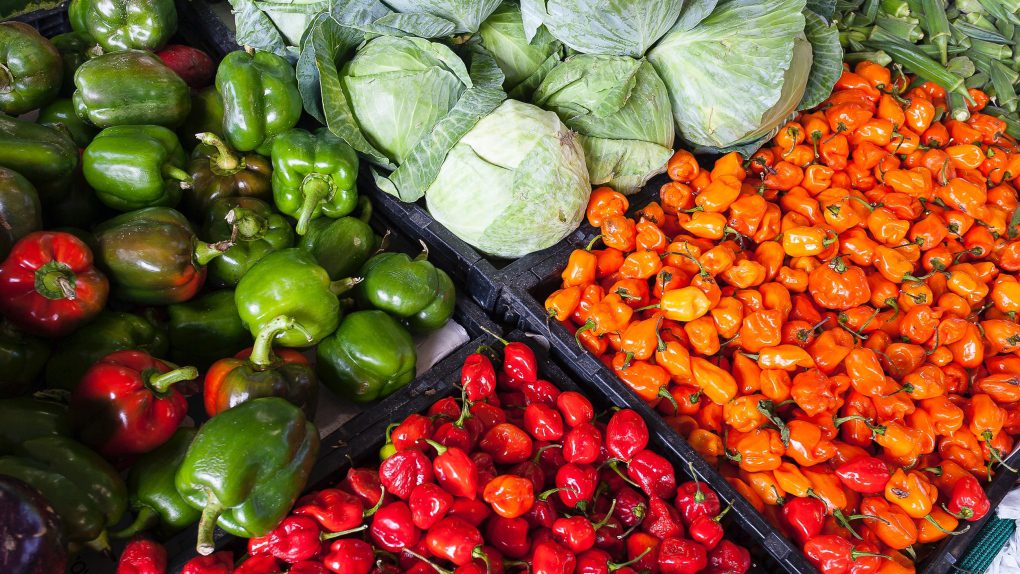Global Courant 2023-04-21 05:36:00
Our diet can affect many aspects of our health, but eating the right foods can also help reduce the risk of miscarriages, according to a new study.
A new study published in the peer-reviewed journal Fertility and Sterility Earlier this month, 20 studies that looked at the eating habits of women and other people capable of carrying a baby in the months before and after conception were reviewed to see if these studies show a clear influence of nutrition during early pregnancy. demonstrated.
What they found was that a diet rich in fruits, vegetables, seafood, dairy products, eggs and grain was generally associated with a lower risk of miscarriage.
“Miscarriage is common, with estimates suggesting that 1 in 6 pregnancies end in miscarriage, and there are many known causes, from problems with the baby’s chromosomes to infections in the womb,” Dr. Yealin Chung, a PhD student at the University of Birmingham and the study’s lead author, said in a press release.
“Yet nearly 50 percent of early pregnancy losses remain unexplained, and in the absence of a cause, parents often turn to their healthcare providers for advice on the best ways to be as healthy as possible and reduce the risk of future miscarriages.”
Of the 20 studies researchers looked at, six had data that allowed for meta-analysis, involving more than 13,000 participants in total.
A high intake of fruit marked the biggest difference, researchers found, with a high intake of fruit associated with a 61 percent reduction in the risk of miscarriage compared to those with a low intake of fruit during pregnancy.
High amounts of vegetables in a pregnant person’s diet were correlated with a 41 percent reduction in the risk of miscarriage, while a high intake of dairy products was associated with a 37 percent reduction in miscarriages. For grains, a high intake reduced the risk of miscarriage by 33 percent. Many seafood and eggs came with a 19 percent reduction in miscarriage risk.
These items are often found within what’s considered a “healthy” diet, researchers note, and it’s important to get enough vitamins and minerals as the body undergoes the new stress of pregnancy.
“There is a growing body of evidence showing that lifestyle changes — including changes in diet, quitting smoking and not drinking alcohol — before you get pregnant and in the early stages of your pregnancy can have an impact,” Chung said.
What constituted “high intake” versus “low intake” varied between the types of food and the specific studies included in the meta-analysis, meaning this new study can’t provide a clear recommendation for how many bananas to eat, say, in a week should consume.
In two studies that provided specific measurements, high fruit intake was broadly defined as two or more servings per day, and low intake was defined as less than two servings per day. The same two studies defined a high vegetable intake as about two to three or more servings per day, with one defining a low vegetable intake as less than three servings per day and the other defining a low vegetable intake as less than seven per week .
To get a broader picture across the studies, the researchers compared high intake and low intake using the highest and lowest intakes recorded in each individual study. Ten studies ranked dietary exposure as a measure of the frequency participants ate a type of food within a day or week. Two studies ranked dietary exposure by asking participants about their preferences for certain foods.
The sample size of the individual studies ranged from 135 women to more than 11,000.
Researchers also looked at predetermined diets to see if following a specific schedule made a difference in miscarriage risk. While predetermined diets such as the Mediterranean diet and the fertility diet were not associated with a reduced or increased risk of miscarriage, researchers found that a diet high in antioxidant-rich foods and low in pro-inflammatory foods seemed to be associated with reduced miscarriage risk .
The only diet associated with an increased risk of miscarriage was a diet rich in processed foods, which was found to have twice the risk of miscarriage compared to a diet low in processed foods .
Researchers found no clear relationship between the risk of miscarriage, or reduction in the risk of miscarriage, in relation to the intake of meat, red meat, white meat, fat and oil, and sugar substitutes. More research is needed to determine whether these foods contribute to miscarriage risk at high or low levels, or may also lower the risk for pregnant people, depending on their intake within an individual’s diet.
It is important to note that this study measured associations, not causality.
“Nutrition advice is one of the most discussed topics for us when we talk to pregnant women and childbirth,” Juliette Ward, a midwife at Tommy’s National Center for Miscarriage Research, said in the release.
“We know that baby loss is very rarely the result of a person’s lifestyle choices, but many people want to know how to be as healthy as possible during pregnancy. Following a healthy diet, taking supplements such as vitamin D and folic acid, exercising and reducing stress are all things people can try, but there is a lack of clear evidence about the links between dietary choices and miscarriage.”
The research was funded by the Tommy’s National Center for Miscarriage Research, through the University of Birmingham.
Researchers stated they believe this study sheds some light on steps expectant parents can take when attempting to conceive and during the early months of pregnancy to reduce risks.
“We strongly encourage couples to consider the importance of making positive lifestyle choices when planning a family, and to continue making these healthy choices throughout their pregnancy and beyond,” Chung said. “Knowing that positive lifestyle choices can make a significant difference in reducing the risk of miscarriage can help couples feel empowered to take charge of their health and the health of their baby.”








